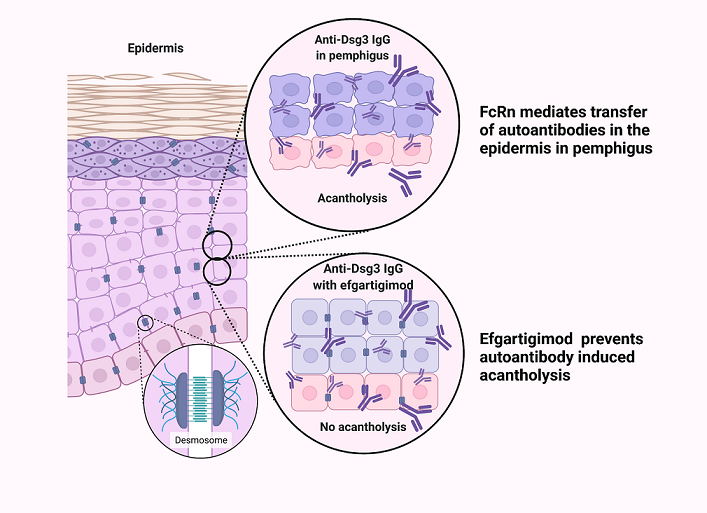Pemphigus vulgaris is an autoimmune blistering disease of the epidermis, caused by autoantibodies against desmosomal proteins, mainly desmogleins 1 and 3, which induce an impairment of desmosomal adhesion and blister formation. Recent findings have shown that inhibition of immunoglobulin G binding on the neonatal Fc receptor, FcRn, results in reduced autoantibody recycling and shortens their half-life, providing a valid treatment option for PV. We have here analyzed the role of FcRn in human keratinocytes treated with novel, recombinant anti-desmoglein-3 antibodies that induce pathogenic changes in desmosomes, such as loss of monolayer integrity, aberrant desmoglein-3 localization and degradation of desmoglein-3. We show that blocking IgG binding on FcRn by efgartigimod, a recombinant Fc fragment that is undergoing clinical studies for pemphigus, stabilizes the keratinocyte monolayer, whereas the loss of desmoglein-3 is not prevented by efgartigimod. Our data show for the first time that FcRn may play a direct role in the pathogenesis of pemphigus at the level of the autoantibody target cells, the epidermal keratinocytes. Our data also imply that in keratinocytes, FcRn may have functions different from its known function in IgG recycling. Therefore, stabilization of keratinocyte adhesion by FcRn blocking entities may provide a novel treatment paradigm for pemphigus.

